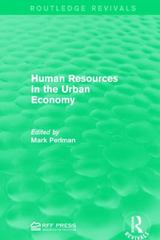Question
Economics 10 Module IV MODULE TEST TEST I. Multiple Choice. Encircle the letter that corresponds to the best answer. 1. Planning is ideal for a.
Economics 10
Module IV
MODULE TEST
TEST I. Multiple Choice. Encircle the letter that corresponds to the best answer.
1. Planning is ideal for
a. big projects
b. small projects
c. any size of project
d. the government
2. Planning identifies the different alternatives to be taken to:
a. save on costs
b. maximize profits
c. achieve better living standards
d. achieve desired objectives
3. The government and other sectors of the economy are planners in a:
a. command economy
b. socialist economy
c. mixed economy
d. capitalist economy
4. Development planning is done by:
a. businesses and government
b. MNC
c. businesses
d. the government
5. A multi sectoral approach in planning involves:
a. the government and its agencies
b. the different regions
c. the business sector
d. all of the above
6.Planning in communist countries is called:
a. national planning
b. central planning
c. government planning
d. all of the above
7. The improvement introduced in the planning of command economies is called:
a. decentralization
b. multi sectoral approach
c. regional planning
d. local planning
8. The process of planning in mixed economies should not use any feature of a command economy:
a. True
b. False
c. Only adopt useful features
d. do not adopt any feature
9. Decentralization in planning should be adopted because it facilitates:
a. savings
b. a shorter planning process
c. multi sectoral approach
d. better administration in planning
10. A stable, strong economy usually adopts a:
a. short term plan
b. long term plan
c. interim plan
d. medium term plan
11. Long term planning is not ideal in modern times because:
a. there are a lot of unexpected world developments
b. there are no qualified planners
c. it takes so long to see results
d. it is used by communists
12. A good economic forecast can result into:
a. a short term plan
b. a long term plan
c. a well directed plan
d. a simple plan
13. Rolling plans are not popular in Third World Countries because:
a. of a big job involved every year
b. of the expenses involved
c. it appears no new plan is made
d. all of the above
14. The ideal duration of a development plan is one which allows:
a. changes to be made
b. results to be realized
c. flexibility
d. a and b
15. Plan objectives states what the country
a. wants to achieve
b. wants to avoid
c. a and b
d. should follow
16. The nature of the objectives of a development plan are:
a. political
b. economic
c. social
d. all of the above
17. Planning requires these data to be able to come up with an effective plan:
a. qualitative
b. quantitative
c. a and b
d. statistics
18. The budget and planning must:
a. be independent of each other
b. go together in development
c. be determined by the government
d. be a part of a development plan
19. Problems on the preparation, management and development of A plan is collectively known as:
a. administrative problems
b. managerial problems
c. coordination problems
d. financial problems
20. Appropriations in the budget must be approved by the government before it can be:
a. consolidated
b. approved
c. released
d. formulated
TEST II. Given below are activities and plans of action involved in planning. Knowing the role and elements of development planning, answer with a letter I if you recommend an increase and a letter D if you recommend a decrease in these activities. Write your answers on the blanks before each number.
_____ 1. statisticians
_____ 2. cooperation from citizens
_____ 3. control in the release of development funds
_____ 4. alternatives to achieve an objective
_____ 5. decentralization of planning
_____ 6. utilization of foreign funds
_____ 7. project by project planning
_____ 8. short term plans
_____ 9. rolling plans
_____10. social objectives
_____11. administrative inadequacy
_____12. central planning
_____13. comprehensive planning
_____14. power of central authority
_____15. planning techniques
_____16. world events that are difficult to predict
_____17. political influence in employment of government workers
_____18. government agencies based in the cities
_____19. willingness to reform economic institutions an attitudes
_____20. multispectral approach
TEST III.Essay
- Explain briefly, the difference in the approach of planning in command and mixed economies.
Step by Step Solution
There are 3 Steps involved in it
Step: 1

Get Instant Access to Expert-Tailored Solutions
See step-by-step solutions with expert insights and AI powered tools for academic success
Step: 2

Step: 3

Ace Your Homework with AI
Get the answers you need in no time with our AI-driven, step-by-step assistance
Get Started


